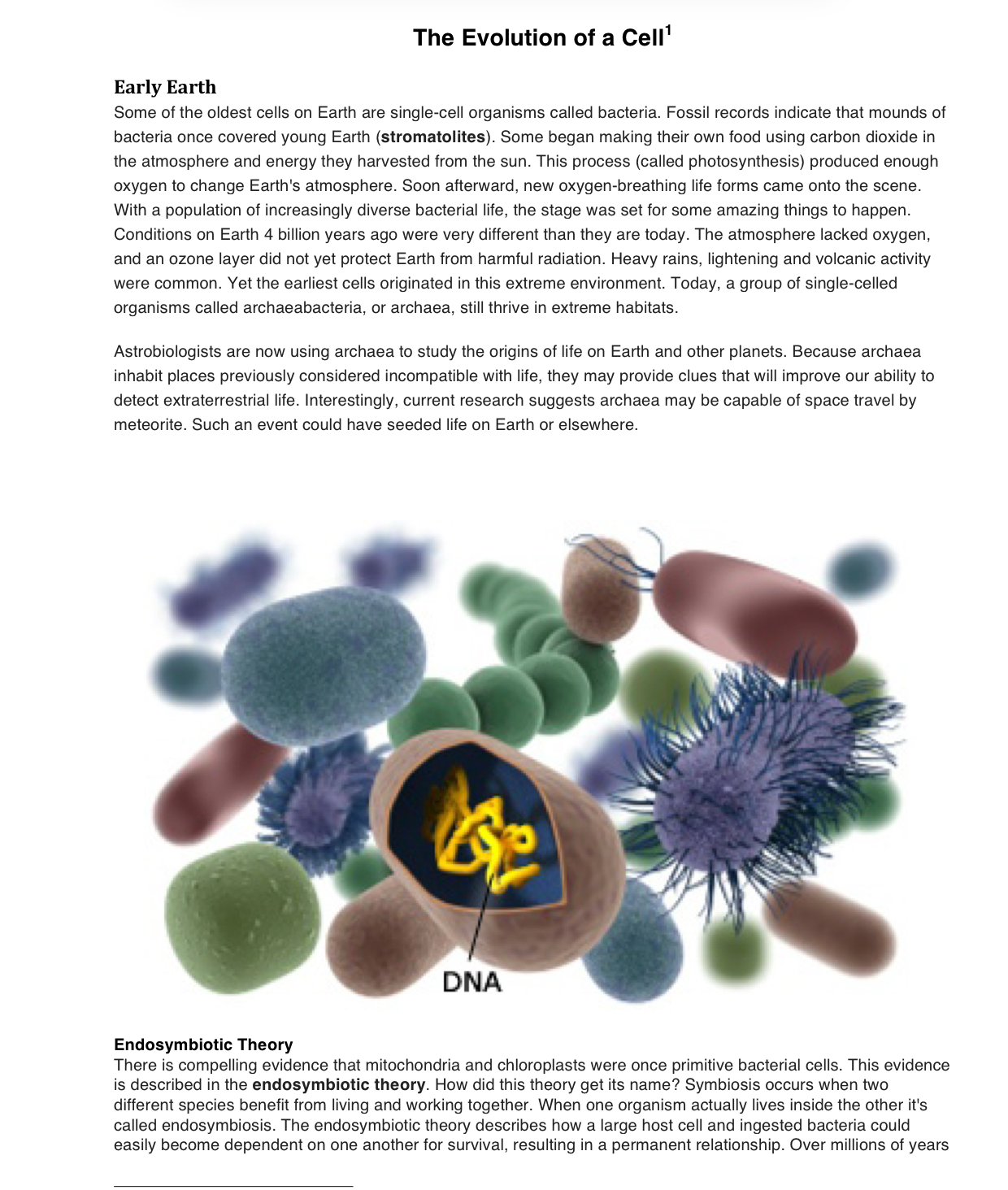What is the significance of early single-celled organisms in the evolution of life on Earth?

Understand the Problem
The text discusses the early evolution of life on Earth, focusing on single-celled organisms such as bacteria, the conditions of early Earth, and the endosymbiotic theory regarding the origins of mitochondria and chloroplasts. This forms a foundational understanding of cellular evolution.
Answer
Crucial for evolution, enabling aerobic life and multicellularity.
Single-celled organisms were crucial in Earth's evolution, driving the transition from anaerobic to aerobic life due to photosynthesis. They laid the groundwork for complex life by evolving into multicellular forms and were the ancestors of all living organisms.
Answer for screen readers
Single-celled organisms were crucial in Earth's evolution, driving the transition from anaerobic to aerobic life due to photosynthesis. They laid the groundwork for complex life by evolving into multicellular forms and were the ancestors of all living organisms.
More Information
Early single-celled life forms, such as stromatolites, altered Earth’s atmosphere through photosynthesis, increasing oxygen levels and setting the stage for more complex organisms. Their evolution into multicellular organisms marked a significant turning point in the history of life.
Sources
- All Species Evolved From Single Cell, Study Finds - nationalgeographic.com
- Biologists Replicate Key Evolutionary Step in Life on Earth | NSF - nsf.gov
- The Evolution of the Cell - Learn Genetics Utah - learn.genetics.utah.edu
AI-generated content may contain errors. Please verify critical information